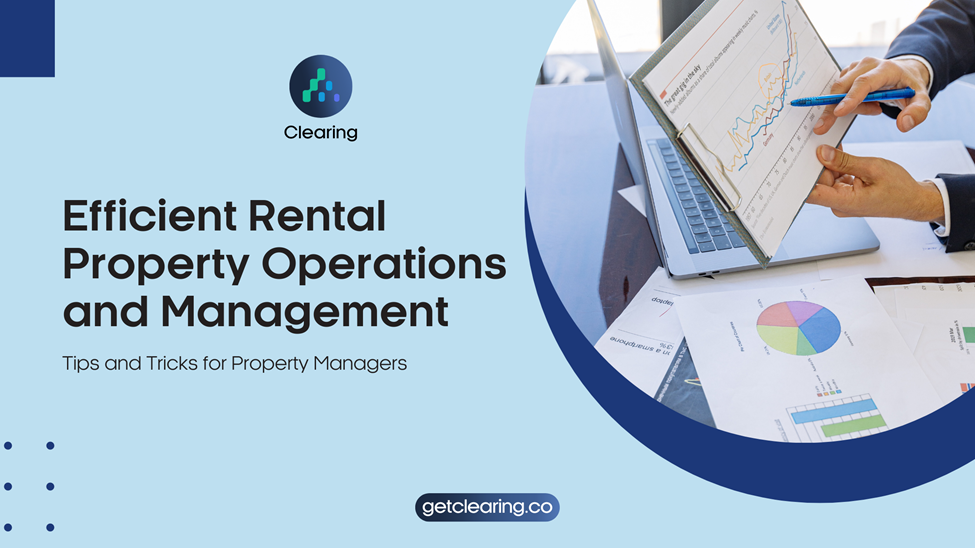Feature Release: Streamline Bookkeeping with Clearing's Automation Rules
Learn how Automation Rules can be used to automate transaction classification and streamline bookkeeping for property managers. Save time and improve trust accounting accuracy.
June 12, 2023
Olivia

Managing financial transactions in today's digital world can be challenging, especially for property managers dealing with multiple vendors and homeowners.
Accurate bookkeeping requires proper allocation and categorization of all transactions. That's where Automation Rules come in. By automating the categorization and allocation process, property managers can save time, reduce the risk of errors, and enhance overall financial management.
Incorrect categorization and allocation can lead to misinterpretation of financial information and time-consuming bookkeeping procedures. Manual handling of transactions increases the likelihood of errors and can be a drain on time and resources. With Automation Rules through the Clearing platform, property managers can streamline their bookkeeping process and achieve greater accuracy in their financial information.
Implementing Automation Rules with Clearing allows users to automate the categorization and allocation of transactions, minimizing the possibility of mistakes. By saving time and improving accuracy, property managers can focus on core business functions, rather than getting bogged down in manual bookkeeping. Take that vacation from bookkeeping that you deserve!

Using Automation Rules through Clearing provides a robust solution to the challenges and time commitments that property managers face while bookkeeping. There are four different types of rules available:
“By Account” Rules
These rules are useful when specialized bank accounts, credit cards, or zero balance accounts require predetermined categorization. For example, transactions from a specific virtual account can be automatically categorized as marketing and linked to a specific asset.
“By Merchant” Rules
Property managers can ensure consistent categorization of transactions from specific suppliers by setting up these rules. These rules can also categorize previous transactions, making the process more efficient.
“By Asset” Rules
With this type of rule, property managers can label specific items or buildings, such as "one bedroom" or "studio", and all transactions related to a particular asset will be tagged accordingly. This makes tracking and financial analysis much easier.
“By Type” Rules
These rules allow for the automatic classification of specific transaction types, such as modifications, cancellation fees, or host fees. They are particularly well-suited for third-party platform integration transactions, like from Airbnb and Stripe.
To learn more about using Automation Rules through Clearing, a demo may be beneficial.
Get in touch today - we will show you the impact and flexibility of Automation Rules!
Clearing is a Financial Technology Company, not a bank. Deposit Accounts are issued by Evolve Bank & Trust, Member FDIC.



%20(1).png)
%20(1).png)
%20(1).png)
%20(2).png)
%20(2).png)



%20(2).png)


%20(2).png)
%20(1).png)
.png)


%20(2).png)
%20(2).png)

.jpg)
.png)
.png)
.png)




.png)

.png)
%20(1).png)
.png)

.png)

.png)
.png)
.png)
.png)
.png)
.png)


.png)
.png)
.png)
%20(1).png)
%20(1).png)
%20(1).png)
%20(1).png)
%20(1).png)
.png)
.png)
.png)
.png)
%20(1).png)
.png)
.png)
.png)
.png)
%20(1).png)
.png)

.png)
.png)
.png)
.png)


.png)
.png)
.png)
.png)
.png)
%20(1).png)
%20(1).png)
.png)
.png)
.png)
.png)
.png)
.png)
.png)
.png)
.png)
.png)
.png)
.png)
.png)
.png)
.png)
.png)
.png)
.png)
.png)

.png)